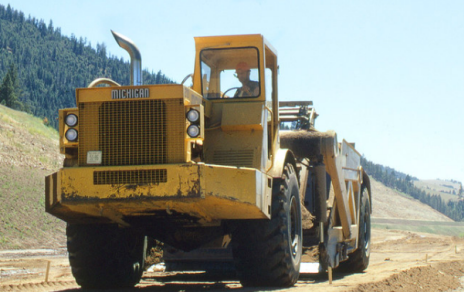M23 rebels in eastern Democratic Republic of Congo have taken control of Rubaya, a key mining town for the smartphone mineral coltan, following days of intense fighting, a rebel spokesman said.
Congo’s east has been plagued by violence since the 1990s, killing millions as struggles over national identity, ethnicity, and resources saw neighbouring countries invade and a myriad of armed groups spring up.
Willy Ngoma, the Tutsi-led M23 military spokesman, told Reuters the town, in North Kivu, was under their control after they went after other armed groups in the region including the Forces for the Liberation of Rwanda, which is composed of ethnic Hutus.
Congo’s army spokesman for its operations against the rebel group, Lieutenant Colonel Guillaume Njike, told Reuters it could not confirm if the rebels had seized the town.
“We are in the process of cross-checking since yesterday whether or not it has fallen to the hands of the M23 rebels,” Njike said.
A spokesman for Congo’s government did not respond to Reuters request for comments.
Most of Congo’s mineral resources are concentrated in the east, where insecurity has worsened since the M23 made a major comeback in March 2022.
Rubaya holds rich deposits of tantalum, which is extracted from coltan and which is a critical energy transition mineral also used in the manufacture of smartphones, laptops and game consoles.
The M23 have already taken control of Rubaya twice for a few days since their current offensive began.
The Congolese government, UN officials and Western powers have accused Rwanda of providing support for M23, which Rwanda has repeatedly denied.
A youth leader in the town told Reuters by telephone that the town was encircled by the rebels.
“There is a large displacement of the population because the clashes are intense,” Clovis Mafare said, adding that the town’s mining quarries were not occupied.
Rubaya was previously under the control of a pro-government militia group known as the Wazalendo.
The United Nations said in December that Wazalendo armed groups controlled sites within main exploitation perimeters, compromising the tin, tantalum and tungsten supply chain.
Conflicts have arisen over the control of the illicit trade in tin and gold as well as in coltan and tantalum – all mined in Congo before being smuggled out through neighbouring Rwanda, Uganda and Burundi.
Congo’s government is currently pushing Apple for more information about its supply chain over concerns it may be tainted with conflict minerals. Apple has said it found no basis to conclude any smelters or refiners in its supply chain financed or benefited armed groups in Congo or an adjoining country.
(By Sonia Rolley, Erikas Mwisi Kambale, Ange Kasongo, Bate Felix and Sofia Christensen; Editing by Alison Williams)
